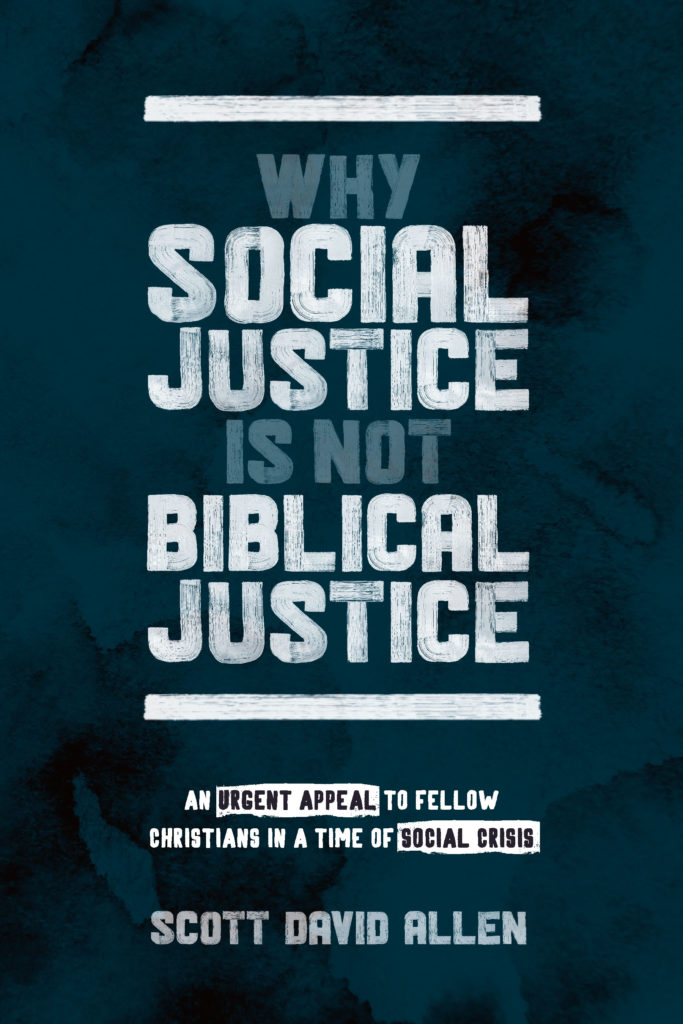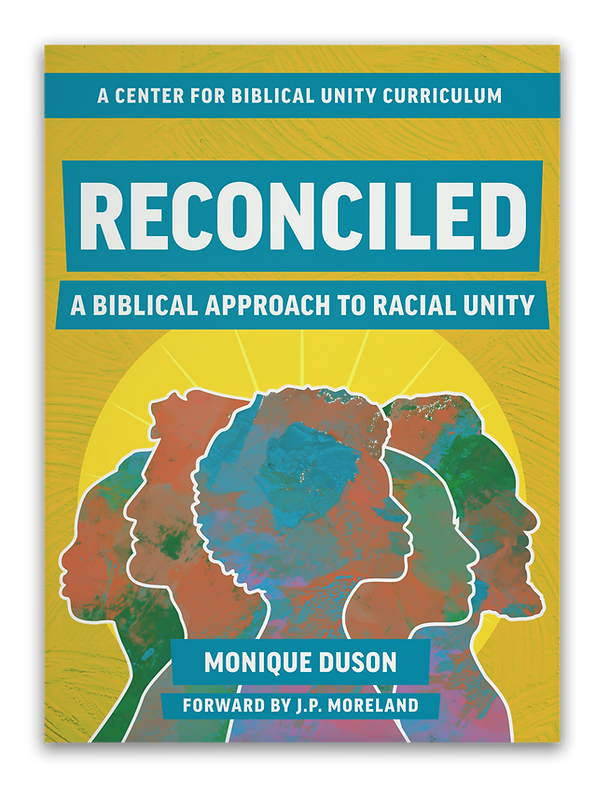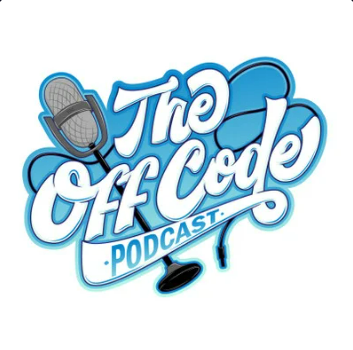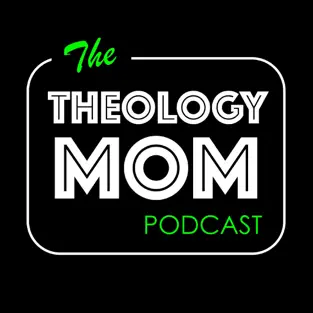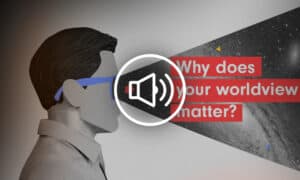At a Glance
Our culture today is infatuated with framing everything as a battle between oppressed and oppressor. White versus colored. Straight versus gay. Rich versus poor. The woke agenda has spiraled into a victim culture where words like “justice“ and “kindness“ don’t mean what they used to. Special guests Monique Duson and Krista Bontrager from the Center of Biblical Unity join us as we discuss what the Bible says about race and how biblical justice informs us on the topics of wokeness, niceness, and issues in public education. We come together to celebrate God’s great plans for each individual and the unity and justice that can be found among God’s children in an ever more divided world.
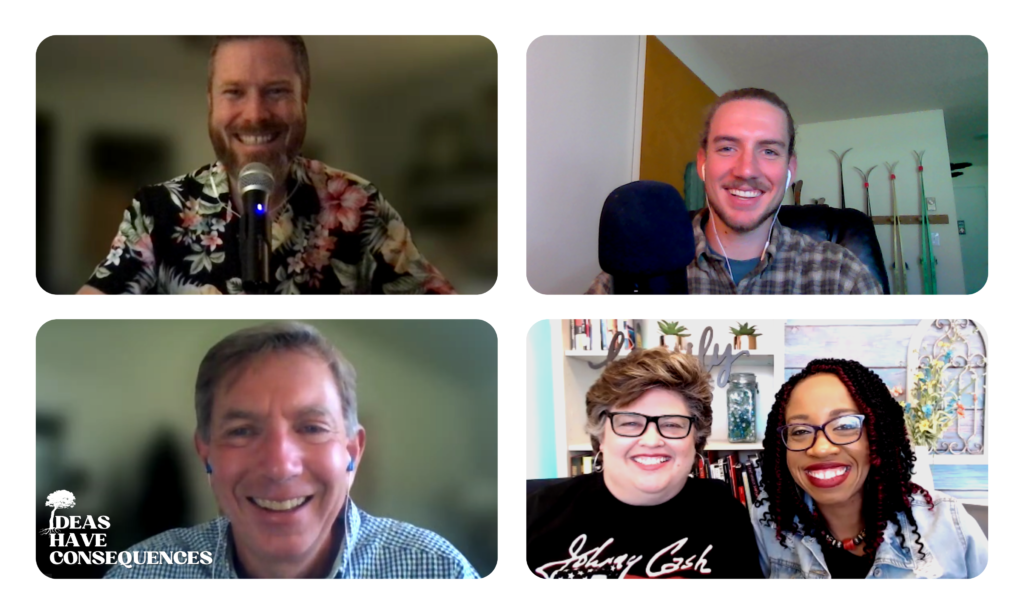
How do we define “Critical Race Theory”, “Social Justice”, and “Woke”?
What is Critical Race Theory?
This ideology goes by many names–identity politics, critical social theory, critical race theory, intersectionality, antiracism, and cultural Marxism to name a few–but its millions of devotees signal their loyalty to this belief system by speaking proudly of their commitment to social justice. While this term has historic Christian roots, since the 1970s it has been captured, redefined, and pushed into service as the primary label of this deeply anti-Christian worldview.
What is Social Justice
In today’s broader culture, the term “Social Justice” means the work of dismantling and deconstructing traditional systems, structures, and norms deemed to be oppressive, and the redistribution of power and resources from oppressors to victims in the pursuit of “equity,” or equality of outcome…
What is Wokeness?
To be “woke” is to be conscious of this vast and often hidden array of systemic and structural oppression. To fight for Social Justice is to engage in the effort to expose, deconstruct, and dismantle these oppressive systems and structures, and eliminate all group disparities in pursuit of a utopian equality of outcome.
This comes from Scott’s blog, “Ten Things Every Christian Should Know about Social Justice Ideology.” Read more about the background of this worldview and why we find it incompatible with a biblical worldview in “Race in America: Two Opposing Narratives.”
What You'll Hear
Chapter 1: Race Conversations Around the Country (1:50)
- Monique and Krista recently went on a road trip and talked about race in the different areas they visited.
- Different places around the country talked about race differently.
- Victim Culture: Going beyond, “You are a victim because you are a minority,” or, “You think like this because you are white.”
- What is the woke agenda?: The rise of “wokeness”
Chapter 2: What Does the Bible say About Race (12:35)
- Look to Scripture for the basis of ideas on race, not the culture.
- Why Social Justice is Not Biblical Justice
- Unity comes through Christ.
Chapter 3: The Toxicity of “Wokeness” (18:01)
- It reduces people to a singular aspect of their identity and pits people against each other.
- Opposes foundational principles of the Christian worldview.
Chapter 4: The Woke Definition of Kindness (35:13)
- No matter how “nice” you are, the truth will be offensive to the world.
- It is more important to speak the truth firmly and respectfully than to avoid conflict.
Chapter 5: What is Social and Emotional Learning? (38:46)
- Social and Emotional Learning started as a way to help students problem solve. Since then, it has evolved into a way to train children in a twisted cultural worldview.
- Some schools encourage students to label themselves as LGBTQ and have a policy of not informing parents when their child “comes out”.
- Some schools punish students and teachers for not using requested pronouns.
- Scott D. Allen shares a story where high schoolers claimed an LGBTQ identity only because they do not want to stay in the “oppressor” category of white and straight.
Chapter 6: The New Mission of Public Education (1:02:15)
- Public schools have become worldview boot camps.
- Christians have to get creative about education so children are not indoctrinated into a worldview that is hostile to the truth.
- Don’t wait for your school to change. Do what is right for your child now.
Chapter 7: White Guilt and “Niceness” (1:08:59)
- Some of Luke’s university friends felt ashamed for being white.
- In white culture, being direct can be seen as unkind in a way that it isn’t for other cultures. It does not have to be that way.
- Paradoxically, in Krista and Monique’s experience, most of the strongest “woke” antiracists are white, not minorities.
Using the link above, you can read the transcript, listen along, and adjust the speed of the podcast while you listen.
The coolest thing in culture right now is to be a victim.
(56:00)
Special Guests
Monique Duson
Monique has a background in social service and children’s ministry. She has worked with a diverse array of under-served communities.
She spent two decades advocating for Critical Race Theory (CRT), but through a series of events, began to clearly see the contradictions of CRT with biblical justice and the historic Christian worldview. Monique is now convinced that CRT is not the best way to achieve racial unity and actively speaks out against the use of CRT within the church. Her mission is to promote a vision for racial healing based on the historic Christian worldview.
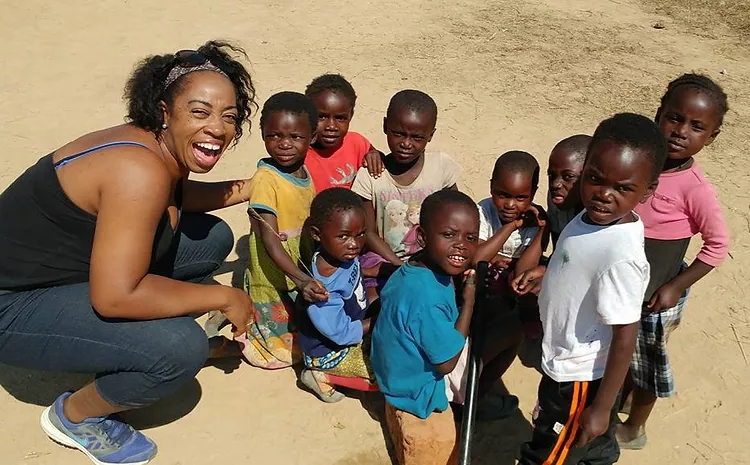
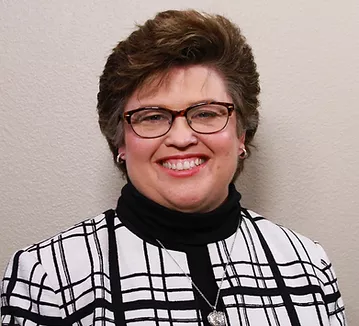
Krista Bontrager
Krista is a fourth-generation Bible teacher. She is an author, podcaster, former university professor and homeschool mom. Krista’s teaching resonates with Christians from all walks of life. She has a unique ability to communicate the truth of Scripture in an accessible and practical way. She has dedicated her life to helping others discover how to love God in Spirit and truth.
Krista has a BA in Communications from Biola University, and a MA in Theology, and MA in Bible Exposition from Talbot School of Theology. She worked for over two decades in various capacities in theology and apologetics, including staff theologian at Reasons to Believe.
Go Deeper
Why Social Justice is Not Biblical Justice
A Book by Scott Allen
This book aims to replace confusion with clarity by holding up the counterfeit worldview and the Biblical worldview side-by-side, showing how significantly they differ in their core presuppositions. It challenges Christians to not merely denounce the false worldview, but offer a better alternative—the incomparable Biblical worldview, which shapes cultures marked by genuine justice, mercy, forgiveness, social harmony, and human dignity.
Reconciled: A Biblical Approach to Ethic Unity
A Curriculum from the Center for Biblical Unity
Many Christians want to stand for racial unity, but don’t know how. And many approaches to “racial reconciliation” can create more problems than they solve. Join Monique Duson, founder of Center for Biblical Unity, on a journey to a solid approach to racial unity, one deeply grounded in historic Christianity. Reconciled is a six-session Bible study for small groups or individuals will help you not only understand the biblical model for unity, but practical ways to live it out in your everyday life.
The Off Code Podcast
A Podcast by Monique Duson and Kevin Briggins
Real and intriguing conversations about the Black community and how we can move forward into biblical human flourishing. Hosted by Monique Duson and Kevin Briggins. Sponsored by the Center for Biblical Unity.
Theology Mom Podcast
A Podcast by Krista Bontrager
Teaching Christians to teach others about the historic Christian faith. Krista Bontrager hosts the “Theology Mom” podcast. She goes live twice a month to address current events through the lens of the historic Christian worldview.
Quotes
“We’ve got to help people get out of the race conversation and into the ideology conversation. Because that’s really the divider. I know the media wants to divide us according to race. But in our experience, that’s actually not the actual divider. It’s the ideology.” Krista (8:56)
“Our unity is in Christ first. And so we have conversations about things that keep us unified in Christ… Once we get that, we are also free to have other conversations.” Monique (14:24)
“I want to clarify that we oppose the critical social theories, not because they come out of academia or because they have connections academically or intellectually to Neo-Marxism… the reason we oppose them is that we truly believe that they are in opposition at the foundational level to the Christian worldview, and secondarily that the Christian worldview has a better answer.” Krista (19:05)
“And I think that’s one of the most common misunderstandings that we see among pastors is that they think they’re doing a noble thing by telling their people to be anti-racist. And what they don’t understand is that the critical race theory is one car in a whole train of cars. So think of the engine as the critical social theory. And then behind that might be feminist studies, where we’re going to promote radical egalitarianism and smashing all patriarchal structures; then critical race theory; queer theory; ablest studies; fat studies. They don’t understand that this isn’t actually a conversation about race. Pastors mean well, but they need to stop thinking that this is a discussion about race. It is not.” Krista (30:05)
“So think about the oppressed/oppressor category in critical race theory. For example, in the oppressor class, we have white people. In the oppressed class, we have all minorities. In the critical child studies framework, the oppressor is the parent, the oppressed is the child… So now if parents are the oppressors, this is why we can go on Tik Tok and Twitter and see teachers now becoming social justice advocates and putting up signs in their classroom that say things like, if your parents don’t accept your sexual identity, I’ll be your mom now. What they’re trying to do is reengineer the public school to become the primary provider, an advocate for the child. To drive a wedge between the child and the parent.” Krista (44:06)
“What was driving these girls to come out as lesbian and trans was race. In other words, they were white and they were straight. And the teachers and the culture were essentially saying to them, you’re the font of all evil in the world. All the oppression in the world is coming from people like you. That is this huge burden of guilt and shame that it’s resting on their shoulders.” Scott (52:58)
“We don’t want to bash culture but we don’t want to be ignorant of culture either.” Monique (55:18)
“The coolest thing in culture right now is to be a victim.” Monique (56:00)
“And right now, what you’re seeing is that the coolest thing in culture is to be in an oppressed category. Because who wants to be the oppressor? The one who cannot do anything right? In our culture, that is your white Christian, straight, male, educated, middle class or above. When you’re reaching that middle school age, you don’t want to be the person who is guilty of the sins of our culture.” Monique (56:12)
“A white girl can immediately transition themselves from the oppressor category to the oppressed, simply by changing their pronoun on Twitter.” Krista (57:12)
“Schools are like boot camps. School is where I indoctrinate you. School is where I get you ready for twelve years, to be prepared to go to war against the ideologies that don’t align with what you’ve been taught. And unfortunately, that’s going to be a very conservative Christian ideology.” Monique (1:02:16)
“God has appointed you to take the lead in your child’s discipleship and education.” Krista (1:06:31)
“Do what’s right today for your kid today. Don’t wait for your school to change.” Krista (1:07:05)

